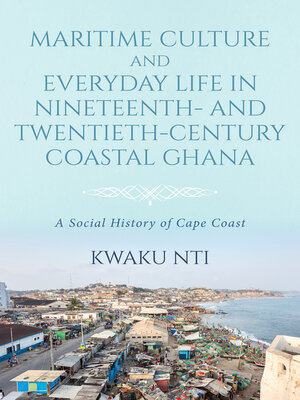Maritime Culture and Everyday Life in Nineteenth- and Twentieth-Century Coastal Ghana
ebook ∣ A Social History of Cape Coast
By Kwaku Nti

Sign up to save your library
With an OverDrive account, you can save your favorite libraries for at-a-glance information about availability. Find out more about OverDrive accounts.
Find this title in Libby, the library reading app by OverDrive.



Search for a digital library with this title
Title found at these libraries:
| Library Name | Distance |
|---|---|
| Loading... |
The communities along the coastline of Ghana boast a long and vibrant maritime culture. In the nineteenth and early twentieth centuries, the region experienced creeping British imperialism and incorporation into the British Gold Coast colony. Drawing on a wealth of Ghanian archival sources, historian Kwaku Nti shows how many aspects of traditional maritime daily life—customary ritual performances, fishing, and concepts of ownership, and land—served as a means of resistance and allowed residents to contest and influence the socio-political transformations of the era.
Nti explored how the Ebusua (female) and Asafo (male) local social groups, especially in Cape Coast, became bastions of indigenous identity and traditions during British colonial rule, while at the same time functioning as focal points for demanding a share of emerging economic opportunities.
A convincing demonstration of the power of the indigenous everyday life to complicate the reach of empire, Maritime Culture and Everyday Life in Nineteenth- and Twentieth-Century Coastal Ghana reveals a fuller history of West African coastal communities.







